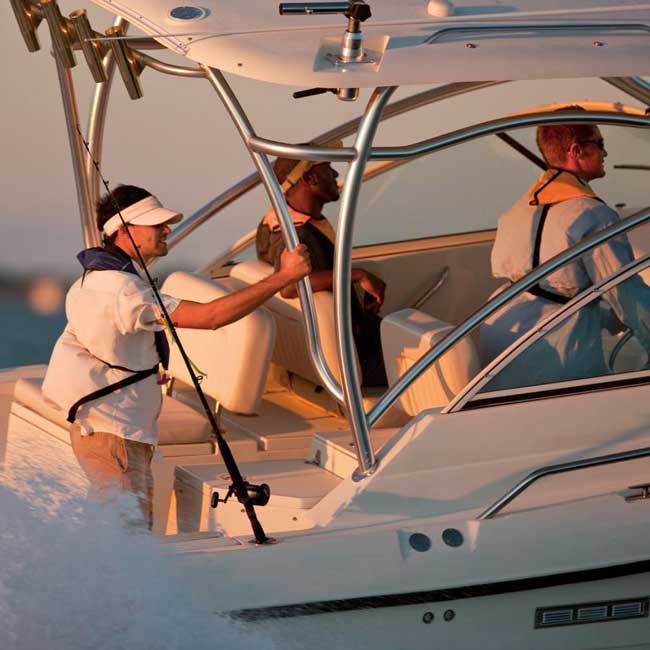You’ve bought a new boat, scrubbed it up with all of your boat cleaning products and you’re now ready to hit the water.
But wait … are you really ready? Water safety is top of the priority list when it comes to boating. So no matter how amazing your new boat looks until you are up to date with how to stay safe in the water, you should not be leaving dry land. Here are some top boating safety tips to make sure you are water-smart:
Have a check-list
This tip is good for everyone; from first-time boaters to even the most experienced of captains. Before you go anywhere, prepare and go through a pre-departure checklist. This will ensure that you haven’t overlooked any safety precautions accidentally. The checklist should include:
- Life jackets: Double check that there are enough on board for all passengers and that everyone knows where they are located.
- Test the horn to see if it is working. If you use a portable air horn, make sure you have a spare can of air on deck.
- Make sure all lights and signals are working, and keep a spare flashlight on board.
- Check that you have all other safety equipment on board including a fire extinguisher, flares, emergency locator beacons and a whistle on each life jacket.
- Keep a first aid kit as well as a toolbox on board and check them for expiry dates or whether they need topping up.
- Carry extra dock lines in case of bad conditions when trying to dock.
Click here for a great printable checklist.
Check the weather
Before you get onto the water, always check the weather conditions first. If you are travelling far, check the weather conditions for your starting point and also the local conditions for where you are going to end up. Listen to the radio and lookup sites like BOM to see the advanced forecast. Also, keep an eye on the sky while you are out in case an unexpected change starts to come across, and you need to reshuffle your plans.
Create a float plan
A float plan is like a holiday itinerary but for the water. Create a list that includes information such as your name, address and phone number plus the number of other passengers on your boat (and their names and phone numbers). Include the boat type and registration as well as the itinerary for your trip.
Give the float plan to someone at home or at the marina where you are heading off from. Always make sure people know when you are expecting to be back.
Keep up the maintenance.
Keep your boat maintained at all times to ensure it is meeting safety requirements. This not only includes washing and detailing your boat (although this is good too) but double-checking safety gear, electronics, lights and that your radio equipment works.
Use life jackets
Life jackets aren’t meant to be stored under the seats for the entire trip. Put a life jacket onto each passenger as they board the boat. Most boating drownings happen because the person was not wearing a life jacket. If you don’t know how to swim but plan on spending a lot of time on the water, it would be very wise to have a few lessons and learn at least the basics.
Have a 2iC
If you are going to be on the water for a long time, or if you have a lot of passengers, it is good for the safety of everyone on board that you have a second in charge – or an assistant skipper. This is someone who holds a boat licence and is familiar with your type of boat and how to run it should they need to. If something were to happen to you, you wouldn’t want everyone stuck out at sea because no one else knew how to operate the boat.
Don’t drink and drive.
It’s the same as when you are on the road or operating heavy machinery. Just because you might be relaxing on the blue seas while the sun is shining, it doesn’t mean it’s safe to crack open some alcoholic drinks. Aside from it being illegal to drink and drive a boat, it is very unsafe. The chances of being in a boating accident are doubled if you are drinking, and although you may only plan to have a couple, you have to take into account the fact that the effects of alcohol are intensified by sun and wind.
Lastly, make sure you use a good dose of common sense. Don’t speed or be tempted to show off by whipping your boat around in crowded areas, steer clear of large vessels that cannot turn or stop as fast as smaller ones and stay alert at all times.
